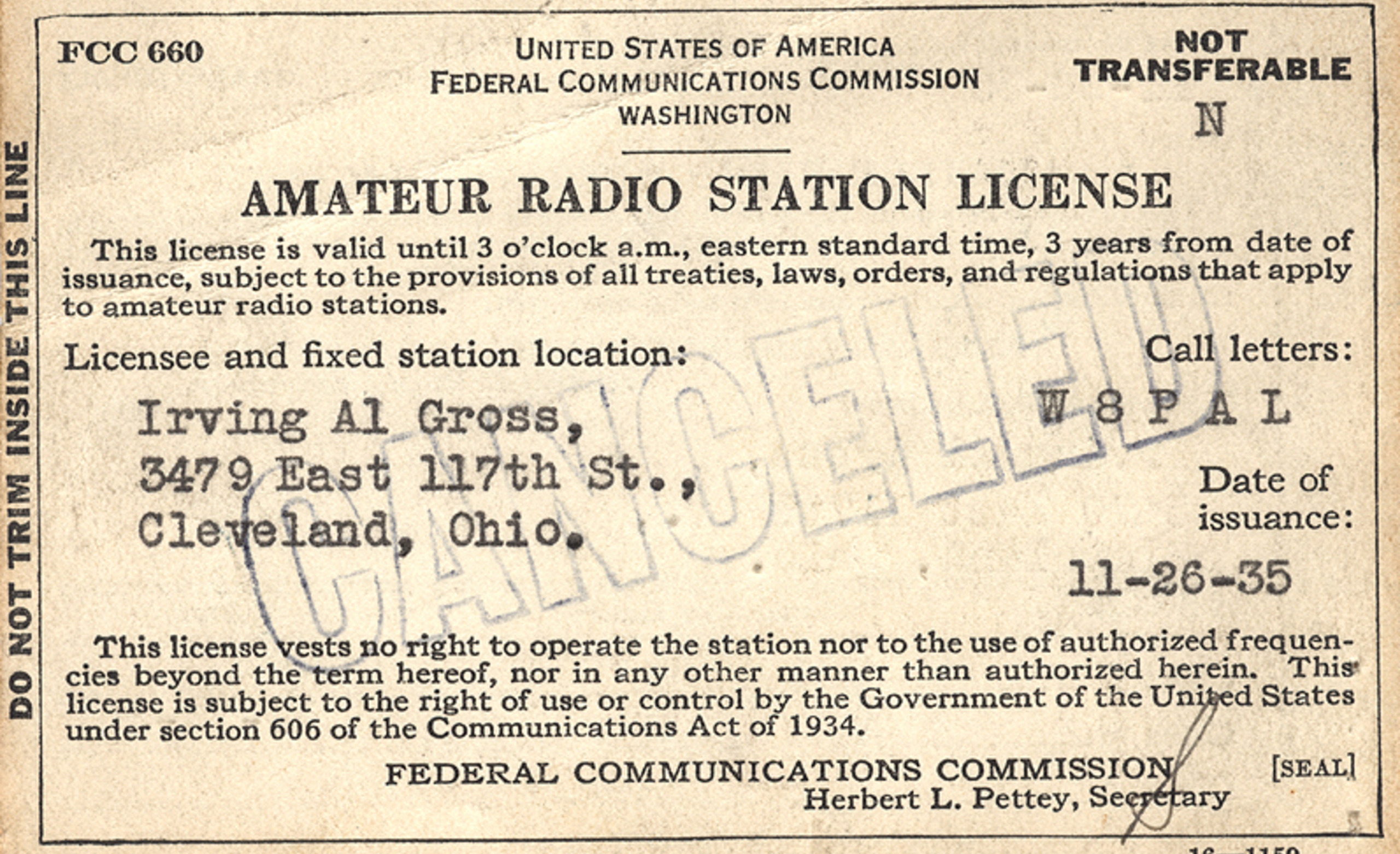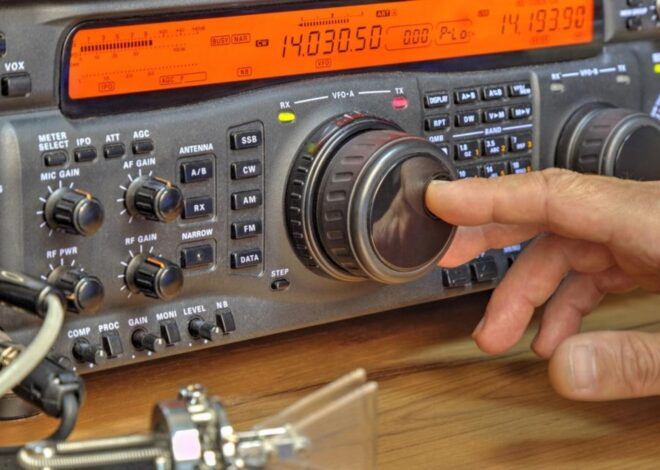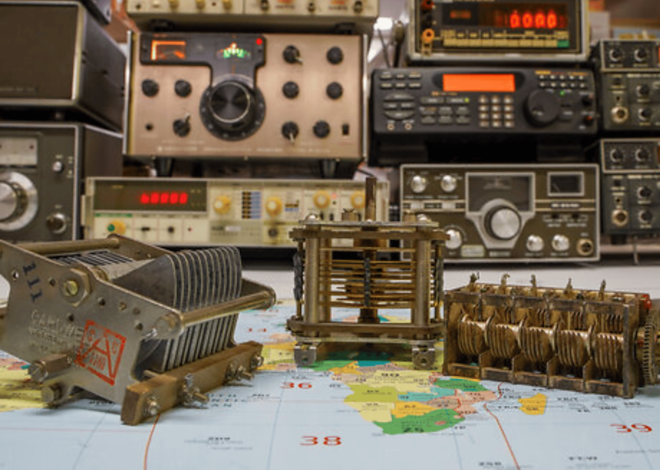
How To Get A Ham Radio License
This article will guide you through everything you need to know about how to get a ham radio license and start your journey into this vibrant community. Ham radio is more than just a hobby; it’s a gateway to endless adventures and connections.
Imagine chatting with someone across the globe, helping in emergency situations, or simply exploring the fascinating world of radio communication. If this sparks your curiosity, you’re not alone! The thrill of ham radio has attracted enthusiasts from all walks of life.
However, before diving into this exciting field, there’s one essential step: obtaining your ham radio license. Whether you’re looking to connect with fellow operators or contribute during crises, getting licensed opens up a world of possibilities. Let’s explore the steps together!
What is a Ham Radio License?
A ham radio license is an official certification that allows individuals to operate amateur radio equipment. This license is issued by government authorities, ensuring that operators understand the technical and regulatory aspects of using this unique communication tool.
With a ham radio license, you gain access to various frequencies designated for amateur use. These frequencies enable communication with others across town or around the globe. It’s not just about talking; it’s about a shared passion for technology and connection.
The licensing process involves passing an exam that covers essential topics like electronics, regulations, and operating procedures. Each level of licensure corresponds to different privileges, allowing operators to engage in more advanced practices as their skills grow.
Having this license signifies your commitment to responsible operation within the amateur radio community. It opens doors to countless opportunities for learning and connecting with fellow enthusiasts.
Why Get a Ham Radio License?
A Ham Radio License opens the door to a world of communication possibilities. With it, you can connect with fellow enthusiasts locally and globally. Engaging in ham radio is not just about chatting; it’s an opportunity to learn technical skills.
You’ll gain knowledge about electronics, propagation, and equipment operation that many find rewarding. Emergency preparedness is another compelling reason to get licensed. During disasters or power outages, ham operators often serve as vital links for emergency services when other forms of communication fail.
Moreover, being part of the ham community offers camaraderie like no other. Joining clubs or attending events allows you to meet passionate individuals who share your interests. Holding a license provides access to exclusive frequencies reserved for amateur use—allowing for clearer signals and less interference than commercial bands.
The Different Levels of Ham Radio Licenses
The world of ham radio offers three distinct levels of licenses: Technician, General, and Extra. Each level opens up a unique range of privileges and responsibilities. The Technician license is the gateway for newcomers. It covers basic radio theory, safety practices, and allows access to VHF/UHF frequencies.
This entry-level license sets the stage for further exploration in amateur radio. Next comes the General license. This tier expands operating privileges significantly, including access to HF bands. It requires a deeper understanding of regulations and technical knowledge but rewards operators with broader communication capabilities.
The Extra license represents mastery in ham radio. It’s designed for those who want full privileges across all bands and modes available to amateurs. Achieving this status involves rigorous study and testing but grants operators complete freedom in their communications pursuits.
Basic Requirements for Getting a Ham Radio License
To obtain a ham radio license, you need to meet a few basic requirements. First and foremost, you must be at least 18 years old for the higher-level licenses. However, there’s no age restriction for entry-level licenses. Next, familiarity with radio operations is essential.
It helps if you have some technical knowledge about radio waves and electronics. This foundational understanding will make studying easier. Another important aspect is that many countries require proof of identity. A government-issued ID or similar document usually suffices.
Additionally, it’s crucial to pass an examination specific to your desired licensing level. The tests cover various topics related to amateur radio operation and regulations. Keep in mind that while formal education isn’t mandatory, dedication and enthusiasm can significantly enhance your learning process as you prepare for the exam.
How to Obtain a Ham Radio License
Obtaining a ham radio license is a straightforward process. First, you need to select the level of license you want to pursue. The Technician, General, and Extra licenses each require different knowledge and skills. Next, find an examination session in your area. Organizations like the American Radio Relay League (ARRL) often host these exams.
Check their websites for schedules and locations. Once you’ve identified an exam date, register for it online or in person if required. Bring necessary items such as identification and any fees associated with the test. After registration, focus on studying relevant materials that cover regulations, basic electronics, and operating procedures specific to ham radio.
Practice tests can also be beneficial in solidifying your understanding before exam day. On the day of your exam, arrive early to calm your nerves. Bring all required documents and stay focused during the test; it’s all about demonstrating what you’ve learned.
Study Materials and Practice Tests
Finding the right study materials is crucial for success in obtaining your ham radio license. Numerous resources are available, from textbooks to online courses that cater to various learning styles. Consider using popular books like “The ARRL Ham Radio License Manual,” which offers comprehensive coverage of essential topics.
Websites dedicated to amateur radio often provide free resources and guides tailored for each level of licensing. Practice tests can significantly enhance your preparation. They simulate the actual exam environment and help identify areas needing improvement. Many websites offer sample questions based on current FCC regulations.
Joining online forums or local clubs can also be beneficial. Engaging with fellow enthusiasts allows you to share tips, exchange study materials, and gain insights from those who have successfully passed their exams. This collaborative approach makes studying more enjoyable while providing valuable support along the way.
How to Study for the Exam
Studying for the ham radio exam can be both exciting and a bit daunting. Start by familiarizing yourself with the topics covered in your specific license level. Focus on understanding key concepts, regulations, and technical skills. Consider joining a local amateur radio club.
They often offer study groups where you can learn from others who have been through the process. Engaging with fellow enthusiasts can make studying more enjoyable. Use flashcards to memorize important terms and definitions. This method is effective for quick recall during the exam.
Online resources are also plentiful. Websites provide practice exams that replicate real test conditions, which helps build confidence. Set aside regular study times to keep information fresh in your mind. Consistency is crucial when it comes to mastering material effectively before taking the plunge into your licensing examination.
Taking the Exam and Obtaining Your License
When you’re ready to take the exam for your Ham radio license, locate a testing session near you. These sessions are often organized by local amateur radio clubs and can be found online. On exam day, bring valid identification and any required materials.
Don’t forget your study notes; they might provide extra confidence. The test consists of multiple-choice questions covering topics related to regulations, operating procedures, and electronics principles. Remaining calm during the exam is key—take your time with each question.
Once you complete the test, results are typically provided on-site. If you pass, congratulations! Your information will be submitted to the FCC for processing. You’ll receive an official call sign once it’s approved—a badge of honor in the ham community that opens up a world of communication possibilities. Your journey into amateur radio has just begun!
Benefits of Having a Ham Radio License
Having a Ham Radio license opens up a world of communication possibilities. It places you among a vibrant community of enthusiasts who share your passion for radio technology. With this license, you can operate on various frequencies and access unique bands that are exclusive to licensed operators. This expands your ability to connect with others locally and globally.
In emergencies, licensed ham operators play critical roles in providing communications support. Your skills could help relay vital information when traditional networks fail. Additionally, acquiring this license enhances your technical knowledge about electronics and radio waves. You’ll gain confidence in troubleshooting equipment and setting up stations effectively.
Engaging in contests or other events can also be rewarding. You have opportunities to test your abilities against fellow hams while enjoying the thrill of competition without any financial barriers typically found in commercial services.
Conclusion: Getting Your Ham Radio License
Getting your ham radio license opens up a world of communication possibilities. Whether you’re interested in emergency preparedness or simply want to connect with fellow enthusiasts, having this license is essential. It not only enhances your technical skills but also allows you to access various frequencies and engage with a global community.
The journey to obtaining your ham radio license may seem daunting at first, but by following the steps outlined above, you’ll find it manageable and rewarding. Embrace the learning process and utilize available resources to prepare for the exam effectively.
Once licensed, you can enjoy all that ham radio has to offer—from new friendships to exciting adventures in communication technology. Taking that step into the amateur radio realm could be one of the most fulfilling decisions you make as an enthusiast or hobbyist.
Get started today! you need to know about how to get a ham radio license and start your journey into this vibrant community. Whether you’re looking to connect with fellow operators or contribute during crises, getting licensed opens up a world of possibilities. Let’s explore the steps together!



